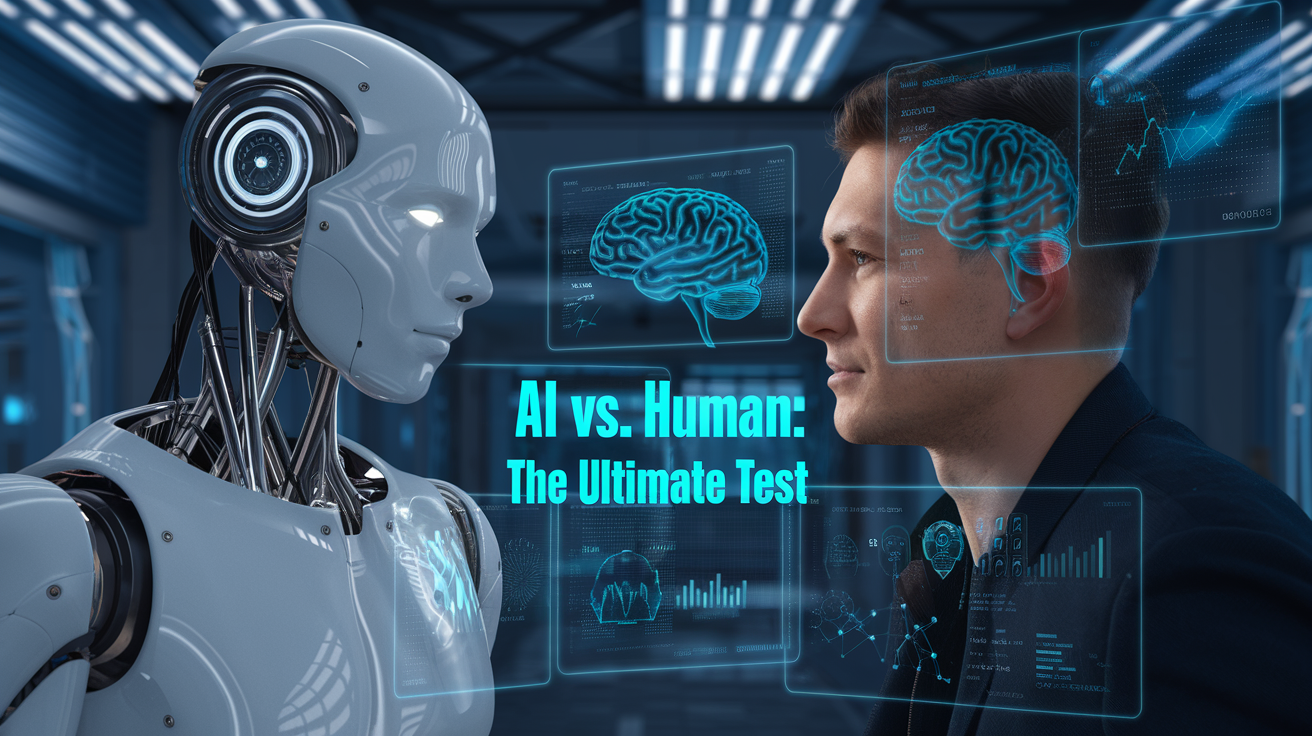Are you ready to challenge your intellect against the rising tide of artificial intelligence? 🤖 vs 🧠 Brace yourself for a mind-bending experience that will make you question everything you thought you knew about human and machine intelligence.Let’s embark on this electrifying journey to uncover who truly reigns supreme in the battle of brains: human or machine?
Defining Intelligence: Humans vs. Robots
A. Traditional measures of intelligence
Traditional intelligence measures have long focused on human cognitive abilities. These typically include:
- IQ tests
- Standardized academic assessments
- Problem-solving challenges
Here’s a comparison of traditional intelligence measures:
| Measure | Focus | Limitations |
|---|---|---|
| IQ Tests | Logical reasoning, pattern recognition | May not capture practical intelligence |
| Academic Assessments | Subject-specific knowledge | Limited to educational content |
| Problem-solving Challenges | Critical thinking, creativity | May not reflect real-world scenarios |
B. Machine learning capabilities
Machine learning has revolutionized robot intelligence, enabling:
- Rapid data processing
- Pattern recognition
- Predictive analysis
- Continuous improvement through experience
C. Adaptability and problem-solving skills
Both humans and robots demonstrate unique problem-solving approaches:
- Humans: Intuitive, creative, and context-aware
- Robots: Data-driven, systematic, and scalable
D. Emotional intelligence: The human edge
While robots excel in data processing, humans maintain an advantage in emotional intelligence:
- Empathy and social awareness
- Self-regulation and motivation
- Relationship management
This emotional capacity allows humans to navigate complex social situations and make nuanced decisions based on contextual understanding. As we explore the AI test in the next section, we’ll see how these different aspects of intelligence are measured and compared between humans and robots.
The AI Test: What It Measures
A. Cognitive processing speed
Cognitive processing speed is a crucial metric in the AI test, measuring how quickly robots can analyze and respond to information compared to humans. This aspect of the test evaluates the efficiency of AI algorithms in processing vast amounts of data in real-time.
| Aspect | Robots | Humans |
|---|---|---|
| Data processing | Milliseconds | Seconds to minutes |
| Multitasking | Simultaneous processing | Limited capacity |
| Fatigue factor | Non-existent | Affects performance |
B. Pattern recognition abilities
Pattern recognition is a key component of intelligence, and the AI test assesses how well robots can identify and interpret complex patterns compared to human capabilities.
- Visual pattern recognition
- Audio pattern analysis
- Data trend identification
- Anomaly detection
C. Decision-making under pressure
The test evaluates the ability of AI systems to make quick, accurate decisions in high-stress scenarios, comparing their performance to human decision-making processes.
D. Memory and data retention
This section of the test measures the capacity and accuracy of AI memory systems against human memory capabilities, including:
- Short-term memory retention
- Long-term data storage
- Information retrieval speed
- Accuracy of recalled information
E. Creative thinking and innovation
The final aspect of the AI test explores the realm of creativity and innovation, challenging the notion that these are uniquely human traits. It examines how well AI can:
- Generate original ideas
- Solve problems in unconventional ways
- Adapt to new, unfamiliar situations
- Combine existing concepts to create novel solutions
With these comprehensive metrics, the AI test provides a detailed comparison of robot and human intelligence across various domains. As we delve into the surprising results of this test, we’ll uncover how robots truly measure up against human cognitive abilities.
Surprising Results: How Robots Compare
A. Areas where AI outperforms humans
AI has made remarkable strides in various domains, often surpassing human capabilities. Here are some areas where robots demonstrate superior performance:
- Data processing and analysis
- Pattern recognition
- Complex calculations
- Repetitive tasks
- Decision-making based on vast datasets
| Task | AI Advantage |
|---|---|
| Chess | Evaluates millions of moves per second |
| Image recognition | Processes thousands of images instantly |
| Weather prediction | Analyzes global data in real-time |
| Language translation | Translates multiple languages simultaneously |
B. Tasks humans still excel at
Despite AI’s advancements, humans maintain an edge in several areas:
- Emotional intelligence and empathy
- Creative thinking and artistic expression
- Adaptability to novel situations
- Complex problem-solving with limited information
- Ethical decision-making
C. The narrowing gap between human and artificial intelligence
As machine learning advances, the distinction between human and artificial intelligence becomes increasingly blurred. AI systems are now tackling tasks once thought to be exclusively human domains, such as:
- Natural language processing and generation
- Visual arts and music composition
- Strategic decision-making in complex environments
The rapid progress in AI capabilities suggests that the gap between human and machine intelligence may continue to narrow in the coming years. This trend raises important questions about the future of human-AI interaction and the potential for collaborative intelligence that combines the strengths of both.
Enhancing Human Intelligence
Brain-computer interfaces
Brain-computer interfaces (BCIs) represent a groundbreaking leap in enhancing human intelligence. These devices create a direct communication pathway between the brain and external devices, allowing for unprecedented control and cognitive augmentation. Here’s a brief overview of BCI applications:
| Application | Description | Potential Impact |
|---|---|---|
| Medical | Assist paralyzed individuals in controlling prosthetics | Restore mobility and independence |
| Communication | Enable thought-to-text or speech synthesis | Aid those with speech impairments |
| Cognitive Enhancement | Boost memory and information processing | Improve learning and problem-solving abilities |
Cognitive enhancement technologies
Beyond BCIs, various technologies are being developed to enhance human cognitive abilities:
- Nootropics: “Smart drugs” designed to improve mental functions
- Transcranial magnetic stimulation (TMS): Non-invasive brain stimulation technique
- Virtual reality (VR) training: Immersive environments for skill development
Education reforms for the AI age
As AI continues to advance, our education systems must evolve to prepare students for a rapidly changing world. Key reforms include:
- Emphasizing critical thinking and creativity
- Integrating AI literacy into curricula
- Focusing on uniquely human skills like emotional intelligence
- Promoting lifelong learning and adaptability
Leveraging AI tools for personal growth
AI can be a powerful ally in our quest for self-improvement. By utilizing AI-powered tools, we can:
- Personalize learning experiences
- Receive real-time feedback on performance
- Automate routine tasks to focus on high-level thinking
- Gain insights from data analysis for better decision-making
As we continue to explore the potential of AI, it’s crucial to remember that the goal is not to compete with machines, but to collaborate with them for mutual enhancement.




